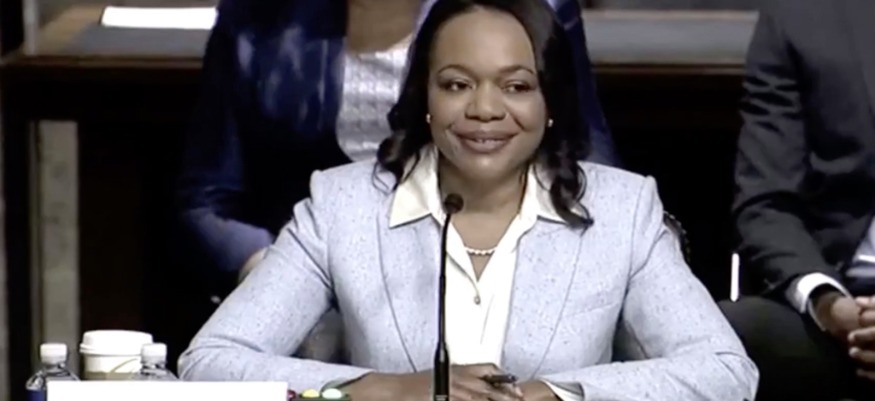
Nominated to lead the Department of Justice’s Civil Rights Division, Kristen Clarke answered questions from senators on both sides of the aisle during a Senate Judiciary Committee hearing Wednesday morning. During the hearing, several Republican senators questioned Clarke’s competence and credibility, often combative in nature.
Grasping at various tweets and out-of-context statements, the senators tried to paint Clarke as an extremist out of touch with the law and the constitution, like when she was asked to explain a June 2020 op-ed she wrote about strategic investments in social support and less in policing.
At times, the nitpicking over her record and distortion of out-of-context tweets distracted from Clarke’s work in prosecuting hate crimes, sex trafficking and official misconduct.
A common thread for several elected officials who supported attempts to undermine the 2020 election and subvert the constitution, consisted of questioning a veteran civil rights lawyer about her commitment to the constitution.
The final committee member to speak, Sen. Cory Booker, entered a correction into the record, directly challenging characterizations by his Republican colleagues of Clarke’s record and comments.
Speaking directly to Clarke, Booker said she benefited from the country’s grace and goodness that led to opportunities that nurtured her genius. “And God, given an opportunity, what did you do with it? You have dedicated your life to our most sacred principles,” Booker said.
With more than 20 years of civil rights law experience, Clarke has a command of the full breadth of knowledge of matters before the division. Clarke’s experience covers voting rights, support for marginalized communities — including religious freedom, education equity, housing discrimination — and disability rights.
If confirmed, Clarke will become the first woman to formally lead the Civil Rights Division. Her colleague Vanita Gupta and other women who have served in the role have done so in an acting capacity. But Clarke becoming a historical first is one of the least interesting things about her nomination.
“If you were building somebody from scratch, as you know, an ideal person to run the Civil Rights Division, you’d end up with somebody a lot like Kristen,” Justin Levitt, a professor at Loyola, told NewsOne.
Levitt has known Clarke for more than 15 years, previously working with her on voting rights and other related civil rights issues. Besides Clarke’s expertise in the civil rights field, her experience as a manager would be an asset to the division, Levitt said.
“Lawyers don’t generally get trained to be good managers,” said Levitt. “You can be a leader in the legal field without ever figuring out how to manage people, but she’s been a manager.”
